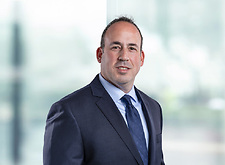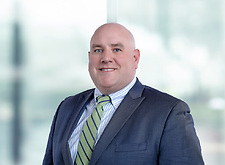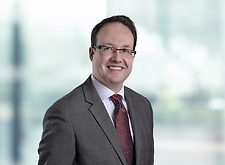Proposed Changes to NYS’s Brownfield Cleanup Program Contained in the Governor’s Executive Budget
New York State’s Brownfield Cleanup Program (“BCP”) has proven to be one of the state’s most successful programs for spurring private-sector remediation and development of contaminated properties. As a quick overview, the state provides refundable tax credits that partially offset the costs of remediating and then developing brownfields in the state. By any economic measure, the program has delivered an excellent rate of return on the state’s tax-credit investment. Since the program’s inception in 2003, the numbers are compelling:
|
Costs Spent Remediating Brownfields (Site-Preparation and Onsite Groundwater Components) |
$2,366,629,466 |
|
Remediation Tax Credits: |
$722,351,753 (30.5%) |
|
Costs Spent Developing Brownfields (Tangible Property Component) |
$15,249,091,485 |
|
Development Tax Credits: |
$2,048,767,391 (13.4%) |
|
Total Costs Remediating and Developing Brownfields |
$17,615,720,951 |
|
Total Tax Credits: |
$2,771,119,165 (15.73%) |
Numbers provided by NYS Department of Environmental Conservation (“DEC”).
Let those numbers sink in for a moment. For a $2.7 billion dollar tax-credit investment, the state has received over $17.6 billion in private-sector remediation and construction that has turned fallow, dilapidated, and often dangerous, eyesores into productive, valuable properties. And this does not take into account the tax revenue (both direct and indirect) that these properties generate going forward. While some of this development may have occurred without the BCP incentives, it has been my experience that the tax credits are frequently the difference between a project being economically viable, or not.
Unfortunately the BCP is scheduled to sunset at the end of this year. The uncertainty of the future of the program has had a significant chilling effect because these remediation and construction projects unfold over multiple years. That’s why it was good to see that the Governor’s Executive Budget contained provisions extending and expanding the scope of the program. Here’s a high-level recap of some of the more notable changes:
- The proposal extends the program by ten years, from December 31, 2022 to December 31, 2032 and requires the remediation to be complete (i.e., receipt of a Certificate of Completion to be issued by DEC) by December 31, 2036.
- Development credits are not available for new projects located in New York City unless certain additional requirements are satisfied. The proposal adds two new options that would allow NYC projects to qualify for these development credits: (i) developments that qualify as conforming brownfield opportunity area sites, and (ii) the project is being developed as a renewable energy facility site. Renewable energy facilities include real property that is primarily used for any renewable energy system under NY Public Service Law § 66-p and certain storage systems.
- The proposal would impose a nonrefundable $50,000 program fee accompanying an executed Brownfield Cleanup Agreement once the project has been admitted into the program. The fee can be waived by DEC upon a showing of financial hardship. This fee cannot be used as part of the costs when calculating the applicable tax credits.
- Certain remediation credits based on costs paid after the issuance of a Certificate of Completion could previously be claimed for up to 5 years after the issuance. This proposal extends that period for certain projects to 7 years.
- Projects admitted to the BCP receive as a base calculation 10% of their development costs (i.e., “qualified tangible property” costs) back as a refundable credit. This 10% base can increase in increments of 5% (not to exceed 24%) if certain requirements are satisfied. The governor’s proposal increases the number of options for achieving a 5% increase by including: (i) sites located in a “disadvantaged community”, and (ii) sites developed as “renewable energy facility sites”.
We’ll see whether these provisions make it through the legislative process and into law. Some of these provisions were received with less enthusiasm ($50,000 fee), but overall, the extension of the BCP for 10 years and the expansion of the program to target disadvantaged communities and foster renewable energy projects are welcomed developments.
For more information, contact Joe Endres (716.848.1504), Mike Hecker (716.848.1599), or visit our Brownfield Redevelopment Practice page.
Featured
- Partner
- Partner
- Partner
- Partner
- Partner
- Partner
- Partner







